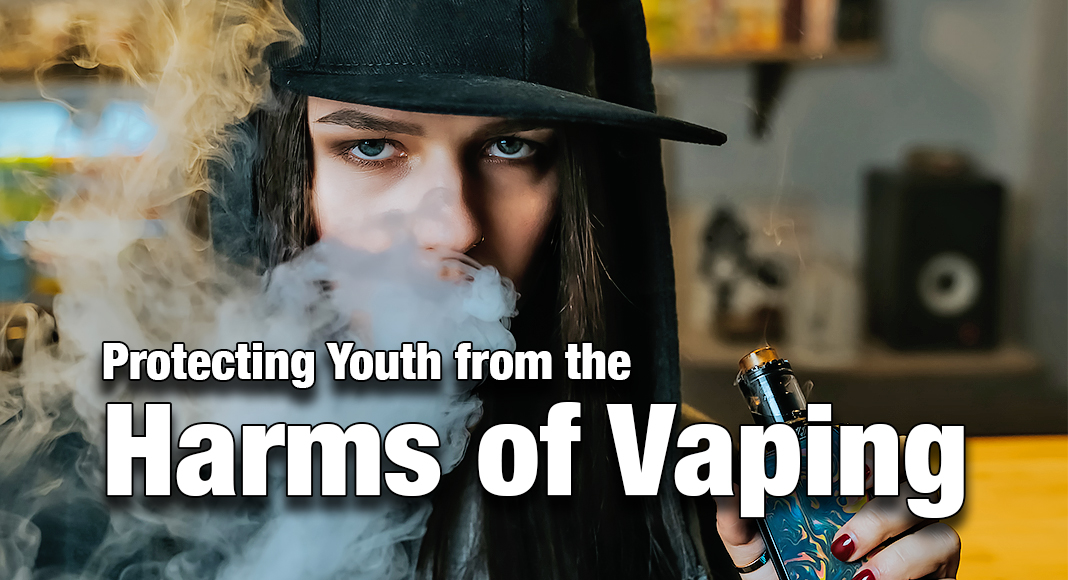
Mega Doctor News
AT A GLANCE
E-cigarettes, or vapes, are battery-operated devices that heat a liquid and produce an aerosol. Vapes come in many shapes and sizes, and they typically contain nicotine. No tobacco products, including e-cigarettes, are safe, especially for youth. Parents, educators, and health care providers play an important role in helping youth reject or quit tobacco use, including e-cigarette use. Talk with youth about vaping, help them understand the risks, and empower them to practice healthy behaviors and positive coping skills.
Vaping, Youth, and Stress
E-cigarettes, or vapes, are battery-operated devices that heat a liquid and produce an aerosol. Vapes come in many shapes and sizes, and they typically contain nicotine.
No tobacco products, including e-cigarettes, are safe. This is especially true for youth, whose brains are still developing until about age 25. Using nicotine during these years can harm the parts of the brain that control attention, learning, mood, and impulse control.
There are many reasons youth might vape. Many students who vape report using e-cigarettes because they feel anxious, stressed, or depressed. E-cigarette marketing and advertising, the availability of appealing flavors, social influences, and the effects of nicotine all play a role in why youth start and/or continue to vape.
- The most common reason students give for trying an e-cigarette is because a friend used them.
- The most common reason students give for currently using e-cigarettes is feeling anxious, stressed, or depressed.
Nicotine is highly addictive. Nicotine addiction can harm mental health and be a source of stress. Nicotine addiction or withdrawal can contribute to feelings of stress, anxiety, and depression, or make these feelings worse. Youth might use tobacco products to relieve their symptoms, which can lead to a cycle of nicotine addiction.
Parents, educators, and health care providers are trusted sources of information for youth. They can talk to youth about vaping and help them learn healthy coping skills instead of vaping such as:
- Recognizing and managing stressful feelings. Help youth identify what causes their stress or anxiety and help them proactively manage stress when they start feeling this way.
- Practicing relaxation techniques. Encourage positive stress management techniques, like meditation, listening to music, or deep breathing.
- Building a support system. Provide support when youth feel stressed and encourage them to reach out to family and friends.
- Practicing self-care. Teach youth how they can manage their feelings of stress by taking care of themselves, including eating a balanced diet, drinking plenty of water, and getting enough sleep.
- Staying active. Empower youth to manage their stress and anxiety by getting physical activity every day.
E-cigarettes are the most commonly used tobacco product among U.S. youth. In 2023, 2.1 million (7.7%) students currently used e-cigarettes. This includes:
- 550,000 (4.6%) middle school students.
- 1.56 million (10.0%) high school students.
Resources for Parents, Educators, and Health Care Providers
No tobacco products, including e-cigarettes, are safe, especially for children, teens, and young adults. Learn how to protect youth from the harms of vapingwith resources from the Empower Vape-Free Youth Campaign.
How To Support Youth To Quit Vaping
Many youth who vape want to quit and have tried to quit. However, nicotine addiction can make quitting hard. Like quitting smoking, people may experience withdrawal symptoms when they quit vaping.
Youth may not know where to start or what resources are available to help them quit. There are many free and low-cost resources available to help, some designed specifically for teens who vape.
Individuals and organizations can play an important role in helping youth reject or quit vaping and all other tobacco products.
Parents, educators, and health care providers all play important roles in helping youth reject or quit tobacco use, including vaping. Working together will help ensure that youth live healthy, tobacco-free lives.
Parents and educators can:
- Help youth develop skills to safely cope with stress.
- Help youth resist social pressure to vape.
Educators can:
- Encourage students to build a support system of family, friends, and educators who will help them stay vape-free.
- Empower youth to talk to a doctor or other health care provider about treatment options.
Health care providers can:
- Ask patients if they use any tobacco products, including e-cigarettes.
- Inform patients who vape about treatment options and quitting support resources.
- Learn about health care provider resources.
There are many free resources available to help youth reject or quit tobacco use, including vaping.
- Resources to Help Youth Reject or Quit Vaping | Smoking and Tobacco Use | CDC
- For Parents: E-cigarettes and Youth: What Parents Need to Know (cdc.gov)
- For Educators:
- Conversation Card: How to Talk to Students about Vaping (cdc.gov)
- Quitting Resources:
- State quitlines (1-800-QUIT-NOW and 1-855-DÉJELO-YA)
Information Source: CDC











